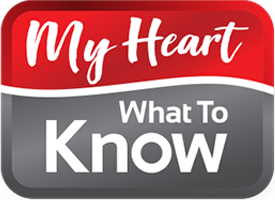High cholesterol is a common health concern affecting millions of people worldwide. It plays a major role in heart disease, which remains one of the leading causes of death. This article will cover everything you need to know about high cholesterol—from causes and risks to testing and prevention strategies.
What is Cholesterol?
Cholesterol is a waxy, fat-like substance found in every cell of the body. It helps the body produce hormones, vitamin D, and digestive acids. In fact, cholesterol is essential for normal bodily functions. However, when levels rise too high, cholesterol can become a health risk.
High cholesterol is diagnosed through a blood test called a lipid panel. Doctors recommend regular cholesterol testing, especially for adults over 20, as high cholesterol can start developing in young adults and even teens. Recommended screening starts at age 9 to 11, and occurs every 5 years up to age 19. At age 20, screening should be conducted every 5 years, from 20 to 45 for men, and from 20 to 55 for women. After age 45 for men and 55 for women, screening should become more frequent, every 1-2 years up to age 65, and after 65 yearly. The results of a test will show three different cholesterol measurements:
- LDL (Low-Density Lipoprotein): Often called “bad” cholesterol, LDL can build up on artery walls, leading to plaque that narrows blood vessels and restricts blood flow.
- HDL (High-Density Lipoprotein): Known as “good” cholesterol, HDL helps remove excess cholesterol from the bloodstream, transporting it to the liver for elimination.
- Triglycerides: These are another type of fat in the blood. High levels of triglycerides combined with high LDL or low HDL can increase the risk of heart disease.
General Cholesterol Targets
Ideal LDL Cholesterol level: Less than 2.6 mmol/L (in healthy people without coronary artery disease)
Ideal HDL Cholesterol level: Above 1.5 mmol/L
If you have diabetes: LDL should be less than 2.0 mmol/L.
If you have had a heart attack: Your LDL should be less than 1.8 mmol/L.
These are general targets– your doctor will decide what’s best for you based on your risk levels and other health conditions.
What Causes High Cholesterol?
High cholesterol can result from a combination of lifestyle choices, medical conditions, and genetic factors.
- Unhealthy Diet: Diets high in saturated fats, trans fats, and processed foods can raise cholesterol levels. Foods like red meat, full-fat dairy, and fried items are primary contributors.
- Lack of Physical Activity: Physical inactivity lowers HDL (good cholesterol) and can lead to weight gain, which may increase LDL (bad cholesterol) and triglycerides.
- Smoking: Smoking damages blood vessels and lowers HDL cholesterol. Smokers are at a significantly higher risk for developing heart disease.
- Obesity: Excess body weight, particularly around the waist, is associated with high levels of LDL and triglycerides, and low levels of HDL.
- Genetics: In some cases, high cholesterol runs in families due to a genetic condition called familial hypercholesterolemia, which affects how the body processes cholesterol.
- Medical Conditions: Diabetes, liver disease, and hypothyroidism can also lead to elevated cholesterol levels. If you have one of these conditions, it’s essential to monitor your cholesterol levels closely with your physician.
How High Cholesterol Affects Your Health
High cholesterol often has no symptoms, so many people are unaware they have it until they undergo a blood test. Yet, over time, high cholesterol silently causes damage to the body, increasing the risk of severe health issues.
High cholesterol is directly related to buildup of plaque in the arteries. The higher the cholesterol, the higher the risk. Plaque buildup and rupture leads to full blockage of the arteries which leads to organ damage due to lack of oxygen delivery to the tissues.
- Atherosclerosis: This condition occurs when plaque builds up in the arteries, narrowing them and reducing blood flow.
- Heart Attack: Plaque buildup and rupture can eventually block blood flow to the heart, resulting in a heart attack. A heart attack may cause permanent damage to the heart muscle and can be life-threatening.
- Stroke: If plaque restricts blood flow to the brain, it can cause a stroke. This is a medical emergency and can lead to long-term disability or death.
- Peripheral Artery Disease (PAD): High cholesterol can affect arteries in the limbs, particularly the legs, causing pain, poor circulation, and, in severe cases, tissue damage requiring limb amputation.
Effective Treatments for Managing High Cholesterol
Although lifestyle changes are often the first line of defense, medications can also be effective in lowering cholesterol levels. The following strategies, when combined, create a comprehensive approach to managing cholesterol.
- Medications, including statins, bile acid sequestrants, cholesterol absorption inhibitors and PCSK9 inhibitors.
- Lifestyle Changes:
- Heart-Healthy Diet: A diet rich in fruits, vegetables, whole grains, and healthy unsaturated fats (like those in olive oil and nuts) helps reduce cholesterol levels. Limiting red meat, full-fat dairy, and fried foods also supports healthier cholesterol.
- Exercise Regularly: Physical activity increases HDL levels and helps maintain a healthy weight. Most experts recommend at least 150 minutes of moderate levels of cardiovascular exercise weekly.
- Quit Smoking: Stopping smoking raises HDL levels, prevents plaque buildup and rupture, and improves overall heart health. The benefits of quitting begin almost immediately.
- Maintain a Healthy Weight: Losing even a small amount of weight can help lower LDL cholesterol and triglycerides while boosting HDL levels.
Preventing High Cholesterol
Prevention is key in managing cholesterol and protecting heart health. By adopting healthy habits, individuals can significantly reduce the likelihood of developing high cholesterol.
- Eat a Balanced Diet: Focusing on a diet high in fiber and low in saturated fats helps manage cholesterol. Foods like oats, beans, nuts, and fatty fish are excellent choices.
- Stay Physically Active: Regular exercise not only raises HDL cholesterol but also helps maintain a healthy weight, which can reduce LDL and triglyceride levels.
- Limit Alcohol: Drinking too much alcohol can raise cholesterol and triglyceride levels, so minimal or no alcohol intake is recommended.
- Manage Stress: Chronic stress often leads to poor lifestyle habits like overeating, smoking, or drinking excessively, all of which can raise cholesterol. Managing stress with relaxation techniques, such as meditation or deep breathing, supports both mental and heart health.
- Get Regular Check-ups: Regular check-ups allow for early detection and timely management of high cholesterol.
- Develop A Support System: Family and friends can provide encouragement and create a supportive environment for lifestyle changes. Regular appointments with your healthcare team can provide personalized guidance and monitoring.
High cholesterol is a common yet manageable condition that requires attention to diet, lifestyle, and sometimes medication. By understanding what cholesterol does in the body, identifying risk factors, and adopting preventive measures, individuals can take control of their heart health. With a combination of healthy habits and consistent tracking of key numbers, managing cholesterol becomes a sustainable and effective way to reduce the risk of heart disease and live a healthier life. Taking these steps today makes a lasting difference for a healthier heart tomorrow.
—
An important step towards better health for many people is reaching a healthier weight, which can reduce the risk of cardiovascular disease. To find a physician near you who specializes in weight management, click here.
—
All the information provided on this site is for educational purposes only and is not a substitute for professional medical advice, diagnosis, or treatment. My Heart – What To Know is not a healthcare provider or clinic. ALWAYS consult with a qualified healthcare provider regarding any questions you may have about a medical condition. Never disregard professional medical advice or delay in seeking it because of something you have read on this website. If you think you may have a medical emergency, call 911 or go to the nearest emergency room immediately. No physician-patient relationship is created by this website or its use.
This article was sponsored by Novo Nordisk Canada. All content is created independently by My Heart – What To Know with no influence from Novo Nordisk.

